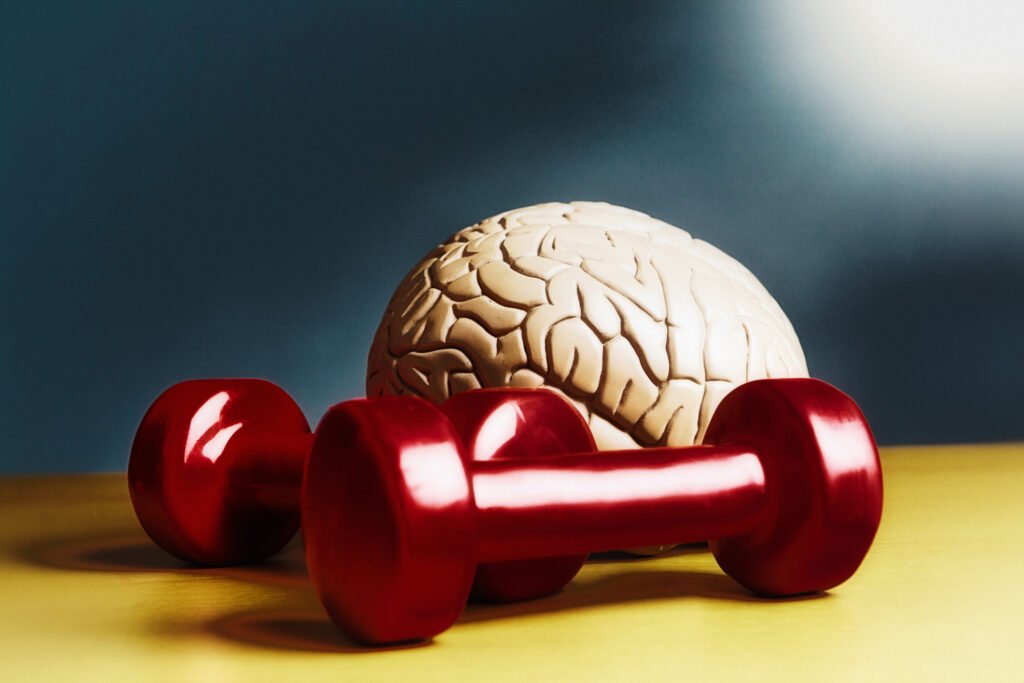Let’s talk longevity—not in the “drink this green juice and manifest forever youth” kind of way, but in a real, science-backed, grab-a-dumbbell-and-change-your-brain kind of way.
A new wave of research is shaking up everything we thought we knew about aging and cognitive health. And here’s the punchline: weight training might just be one of the most powerful tools we have to delay or even reverse early signs of dementia.
Yes, really.
This isn’t just fitness hype—it’s neuroscience, physiology, and pure empowerment rolled into one.
🧠 The Study That’s Got Everyone Talking
Researchers in Australia recently conducted a landmark study published in the Journal of Alzheimer’s Disease that tracked older adults diagnosed with mild cognitive impairment (MCI)—a condition often considered a prelude to dementia.

Here’s what they found:
- One group performed resistance training (think: lifting weights) twice a week for six months.
- The other group remained sedentary.
By the end of the study, the weight-training group had not only maintained but significantly improved their cognitive performance—especially in memory-related regions of the brain. Even more mind-blowing? Brain scans showed actual structural changes—enhanced integrity in the hippocampus, the memory hub of your brain.
“This is one of the first randomized controlled trials to show that resistance exercise can actually protect the brain,” says Dr. Yorgi Mavros, the lead researcher at the University of Sydney. “The benefits were not only cognitive—but structural. That’s huge.”
🏋️♀️ Weight Training = Brain Training
We already know that lifting weights strengthens our muscles and bones (hi, fall prevention and osteoporosis), but its impact on the brain is finally getting the spotlight it deserves.

Let’s break down why it works:
- Reduces inflammation — which is directly linked to many neurodegenerative diseases.
- Improves insulin sensitivity — keeping blood sugar in check, which is critical since diabetes is a known risk factor for dementia.
- Boosts blood flow to the brain — feeding your brain the oxygen and nutrients it needs to thrive.
According to Dr. Mahsa Tehrani, board-certified rheumatologist:
“It sounds too good to be true, but it’s not. Muscle mass is a powerful longevity hack. Strength training supports cognitive function, bone health, metabolic balance—and ultimately helps us remain independent longer.”
✨ Wait, It Gets Better… Some Participants Reversed MCI
Here’s the part that gave us chills: five people in the study actually reversed their mild cognitive impairment after six months of lifting weights. That’s not just slowing cognitive decline—that’s rolling it back.
Think about that for a second.
In a world where dementia diagnoses are climbing—an estimated 6 million Americans are currently living with it, according to the National Institutes of Health (NIH)—this offers a rare dose of hope.
And we’ll need it. The NIH predicts that the number of new dementia cases will double by 2060, and a staggering 42% of Americans over 55 are expected to develop dementia in their lifetime.
🏃♂️ But What If You’re Not Into Lifting? Good News.
A second study, published in Neurology, looked at a different angle. This time, researchers tracked middle-aged adults (45–65) who engaged in moderate to vigorous aerobic exercise, like brisk walking, swimming, or cycling.

They found that this group had significantly lower levels of amyloid-beta—a sticky brain protein that plays a starring role in the development of Alzheimer’s.
In plain speak: regular movement = fewer brain plaques = lower risk of Alzheimer’s.
The magic number? Just 150 minutes a week of moderate-intensity activity. That’s about 21 minutes a day. Totally doable, even with a hectic schedule.
“We don’t have to wait for old age to take action,” said Dr. Ozioma Okonkwo, a neuroscientist at the University of Wisconsin. “The earlier we start, the better our brain’s resilience against future decline.”
💪 So, What’s the Takeaway?
Here’s the real talk: we’re not powerless when it comes to aging or memory loss.
Whether you’re juggling kids, launching a business, or just trying to stay energized for life’s beautiful chaos, your future brain health depends on what you do today. And science says that building strength—literally—can keep your mind sharp and your independence intact.
Let this be your permission slip to:
- Sign up for that strength training class.
- Dust off your dumbbells.
- Make walking meetings your new norm.
- Prioritize movement like your life—and memory—depends on it.
Because in many ways, it does.
🌿 Your Action Plan: Brain-Boosting Moves to Try This Week
- Try resistance training twice a week. Start with bodyweight exercises (like squats or pushups) and work up to weights.
- Aim for 150 minutes of aerobic activity. Walk, swim, dance, hike—whatever brings you joy.
- Add brain-healthy foods. Leafy greens, berries, omega-3s, and turmeric all support cognitive function.
- Prioritize sleep. Your brain detoxes while you rest. Don’t skimp.
You don’t need to overhaul your life. Just start somewhere. Your future self will thank you.
🧠 Stay Curious, Stay Strong
Loved this post? Share it with someone who needs a brain boost. For more tips on vibrant living, longevity hacks, and lifestyle that lights you up—[subscribe to the newsletter] or [follow on Instagram] for daily inspiration.






